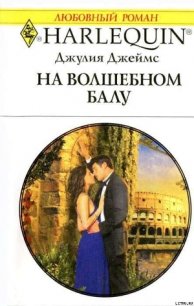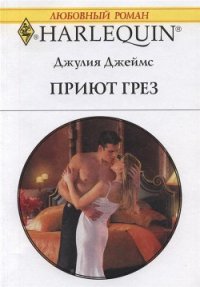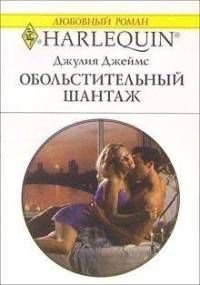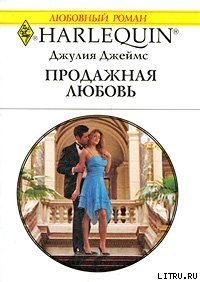Julia Ward Howe - Richards Laura E. (читать книги онлайн полностью без сокращений txt) 📗
Among her papers we have found many relics of these days, from the faded epistle addressed, "a Julie, la respectee, la choisie, l'aimee, la cherie," to the stern letter in which Mr. Ward "desires not to conceal from the Rev. Mr. —— the deliberate and dispassionate opinion, that a gentleman whose sacred office commanded ready access to his roof, might well have earlier ascertained the views of a widow'd Father on a subject so involving the happiness of his child."
The unhappy suitor's note to Miss Julia is enclosed, and Mr. Ward trusts that "the return will be considered by the Rev. Mr. —— as finally terminating the matter therein referred to."
Julia had for her suitors a tender and compassionate sympathy. She could not love them, she would not marry them, but she was very sorry for them, and—it must be admitted—she liked to be adored. So she sang duets with one, read German with another, Anglo-Saxon with a third; for all, perhaps, she may have had something the feeling of her "Coquette et Tendre" in "Passion Flowers."
Ere I knew life's sober meaning,
Nature taught me simple wiles,
Gave this color, rising, waning,
Gave these shadows, deepening smiles.
More she taught me, sighing, singing,
Taught me free to think and move,
Taught this fond instinctive clinging
To the helpful arm of love.
The suitors called her "Diva," but in the family circle she was "Jules," or "Jolie Julie." The family letters of this period are full of affectionate cheerfulness.
When "Jolie Julie" is away on a visit, the others send her a composite letter. Louisa threatens to shut her up on her return with nothing to read but her Anglo-Saxon grammar and "Beowulf." ("If that does not give you a distaste for all wolves," she says, "not excepting those Long fellows,[12] I do not know what will!")
Annie tells of opening the window in Julia's room and of all the poetical ideas flying out and away.
Emily, her brother's wife, describes Mr. Ward sighing, "Where is my beauty?" as he sits at the table; and the letter closes with a lively picture of the books in the library "heaving their dusty sides in sorrow for her absence."
In describing life at "The Corner," we must not forget the evenings at No. 23, Colonel Henry Ward's house. Uncle Henry and his namesake son (the boy who was to "see death approaching with joy"!) were musical. When Mr. Ward permitted (in his later and more lenient days) an informal dance at "The Corner," the three girls sent for Uncle Henry as naturally as they sent for the hair-dressing and salad-making emigres; and the stately, handsome gentleman came, and played waltzes and polkas with cheerful patience all the evening.
On Sunday the whole family from "The Corner" took tea with Uncle Henry, and music was the order of the evening. Mr. Ward delighted in these occasions, and was never ready to go home. When Uncle Henry thought it was bedtime, he would go to the piano and play the "Rogue's March."
(Twice flogged for stealing a sheep,
Thrice flogged for desartion!
If ever I go for a soldier again,
The devil may be my portion!
We hear the fife shrill through the lively air!)
"No! no, Colonel!" Mr. Ward would cry. "We won't march yet; give us half an hour more!" And in affectionate mischief he would stay the half-hour through before marshalling his flock back to "The Corner."
A stern period was put to all this innocent gayety by the death of Mr. Ward, at the age of fifty-three. His life, always laborious, had been doubly so since the death of his wife. Stunned at first by the blow, his strong sense of duty soon roused him to resume his daily responsibilities—with a difference, however. Religion had always been a powerful factor in his life; henceforth it was to be his main inspiration, and he found his chief comfort in works of public and private beneficence.
An earnest patriot, he was no politician; but when his services were needed by city, state, or country, they were always forthcoming. Throughout the series of financial disasters beginning with Andrew Jackson's refusal to renew the charter of the Bank of the United States, and culminating in the panic of 1837, Mr. Ward acted with vigor, decision, and sagacity. His denunciation of the removal of the public deposits from the Bank of the United States by the famous Specie Circular as "an act so lawless, violent, and fraught with disaster, that it would and must eventually overthrow the men and the party that resorted to it," was justified, literally and entirely.
The crisis of 1836-37 called for all the strength, wisdom, and public spirit that the men of the country could show. Mr. Ward labored day and night to prevent the dishonor of the banks of New York.
"Individual effort, however, was vain, and the 10th of May saw all the banks reduced to suspend specie payments; and upon no man did that disastrous day close with deeper mortification than upon him. Personally, and in his business relations, this event affected Mr. Ward as little possibly as any one at all connected with affairs; but, in his estimation, it vitally wounded the commercial honor and character of the city. He was not, however, a man to waste, in unavailing regrets, hours that might be more advantageously employed to repair the evil, and he therefore at once set about the arrangement of measures for inducing and enabling the banks to resume at the earliest possible moment."[13]
This was accomplished within the year. About the same time the Bank of England sent to Prime, Ward & King a loan of nearly five million dollars in gold. Mr. King says, "This extraordinary mark of confidence, this well-earned tribute to the prudence and integrity of the house, Mr. Ward did not affect to undervalue, and confirming, as it did, the sagacity of his own views, and the results which he had so confidently foretold, it was not lost upon the community in the midst of which he lived."
Our mother never forgot the afternoon when Brother Sam came into her study on his return from Wall Street and cried out to her:—
"Julia, men have been going up and down the office stairs all day long, carrying little wooden kegs of gold on their backs, marked 'Prime, Ward & King' and filled with English gold!"
That English gold saved the honor of the Empire State, and the fact that her father procured the loan was the greatest asset in her inheritance from the old firm.
Mr. Ward did not see the kegs, for he was in bed, prostrated by a severe fit of sickness brought on by his labors for the public honor. The few years that remained to him were a very martyrdom, his old enemy, rheumatic gout, attacking him more and more fiercely; but his spirit was indomitable. He labored almost single-handed to establish the Bank of Commerce, and became its first president, stipulating that he should receive no compensation. What he did receive was his death-warrant. The dampness of the freshly plastered walls of the new building brought on in the spring of 1839 two successive attacks so severe that he could not rally from them. Still he toiled on, giving all his energies to perfect and consolidate the enterprise which he believed would be of lasting benefit to his beloved city.




